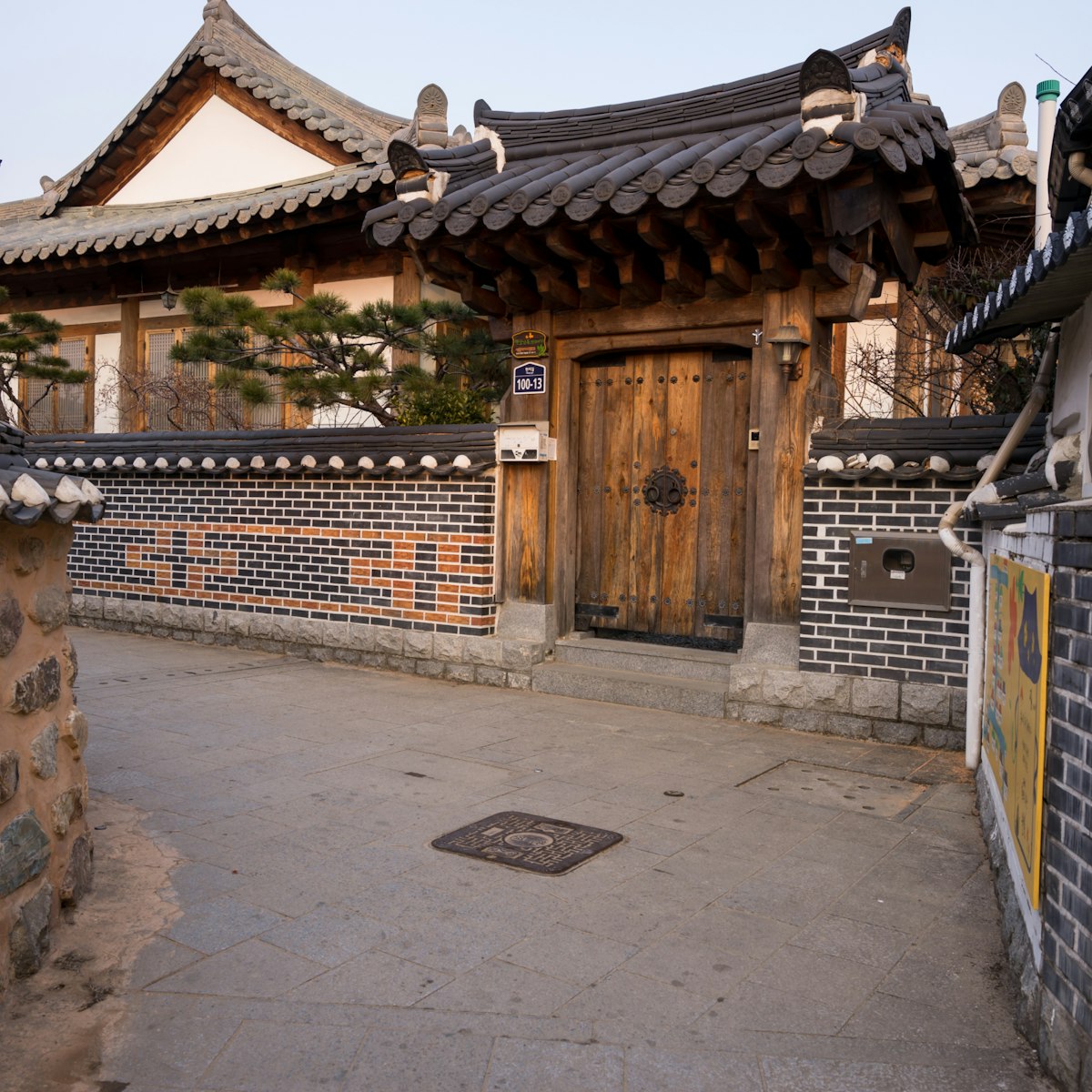
Jeonju
This maeul (village) has more than 800 hanok (traditional wooden homes), making it one of the largest such concentrations in the country. Virtually all of…

Getty Images/Flickr Open
The small south-western province of Jeollabuk-do (전라북도) punches above its weight. At the centre is the capital Jeonju, famous for its hanok maeul, a village of hundreds of traditional tile-roofed buildings that house restaurants, cafes and teahouses. Koreans also call Jeonju, a Unesco-listed 'City of Gastronomy', the country's number-one foodie destination: eat once in Jeonju, they say, and you're spoiled for life. It makes sense: this fertile green province is an agricultural heartland whose fresh produce stars in local dishes.

Jeonju
This maeul (village) has more than 800 hanok (traditional wooden homes), making it one of the largest such concentrations in the country. Virtually all of…

Jeollabuk-do
It's only 36m long, but it feels much longer once you reach the middle of this steel-cable bridge shooting up to the sky at a 51-degree angle. A fantastic…

Jeollabuk-do
This Zen temple, founded in 577 and last rebuilt in 1720, is nestled among verdant hills. Just behind the temple is a 500-year-old camellia forest (동백 나무…

Jeollabuk-do
This temple has a unique sculptural garden of 80 stone towers or pinnacles that were piled up by a Buddhist mystic, Yi Kapmyong (1860–1957). Up to 15m in…

Jeonju
Eclectic, colourful murals adorn the walls of this shantytown, on a hill overlooking Jeonju's hanok maeul. It's slowly gentrifying, meaning several spots…

Jeollabuk-do
This national park is a hiker's playground and home of Deogyusan Muju ski resort. Gucheon-dong, a small tourist village, marks the start of the park’s…

Jeollabuk-do
This park, which contains Moaksan (794m), is a popular destination for hikers on weekends. The main attraction is the temple, Geumsan-sa, which dates to…

Jeonju
This palace is home to shrines, storehouses and guardrooms relating to the Confucian rituals once held here. There is also a replica portrait of Yi Seong…
